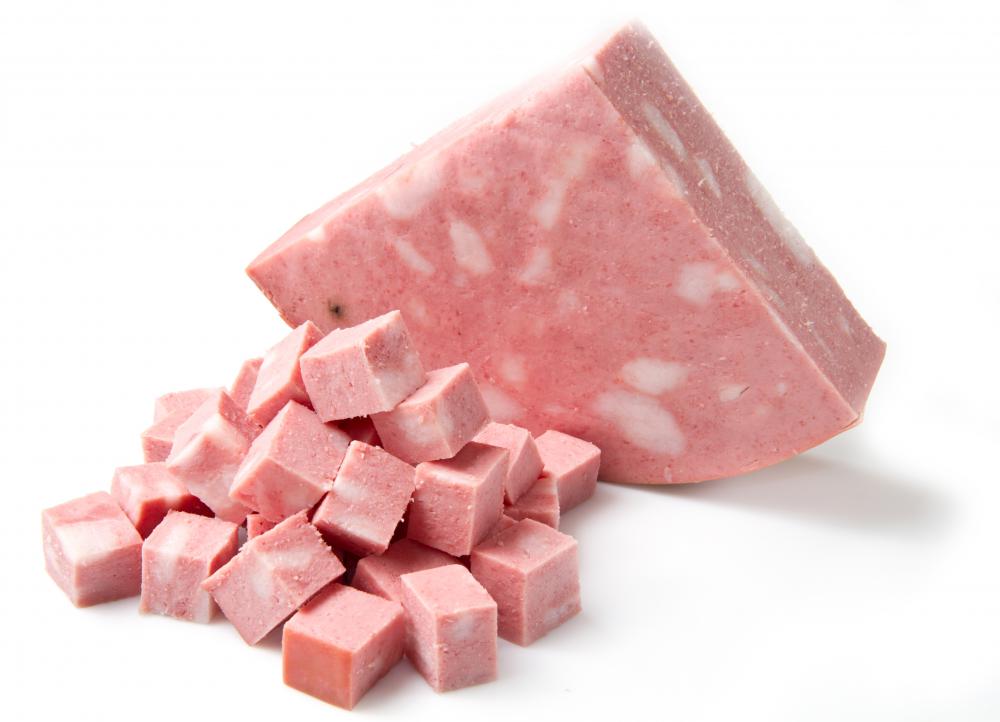At WiseGEEK, we're committed to delivering accurate, trustworthy information. Our expert-authored content is rigorously fact-checked and sourced from credible authorities. Discover how we uphold the highest standards in providing you with reliable knowledge.
What Problems can be Caused by Salicylates in Food?
Almost all foods contain salicylate, a substance that acts as a natural preservative and insecticide. Most people are unaffected by salicylates in food, but some people have a salicylate sensitivity. It is not a food allergy but rather a food intolerance that can be responsible for a wide range of physical and mental symptoms. The resulting physical problems, which can affect the whole body, resemble a cold or flu. Mental problems resulting from salicylates in food often cycle between hyperactivity and fatigue, which can affect both mood and cognitive ability.
Physicals symptoms of an intolerance to salicylates in food can be found throughout the body. Symptoms above the neck can range from swelling of the face to ear infections and mouth ulcers. A sufferer may also display cold- or flu-like symptoms, such as headaches, sinusitis, rhinitis, coughing and wheezing. Skin may show discoloration, rashes or hives, and the person may also have stomach pain or irritation and swelling in the extremities.

Salicylates in food also affect the central nervous system by both activating and inhibiting the brain. This causes cycles of excessive energy and increased sluggishness. Other mental symptoms include distractibility, anxiety, restlessness, nervousness, mood swings, irritability, memory loss, depression, a poor self-image and sleep problems. Some patients with salicylate intolerance are incorrectly diagnosed with attention deficit disorder (ADD).

Typical foods containing salicylates include fruits, especially berries, and vegetables, especially peppers and tomatoes. Salicylate levels are higher under the skin of foods; levels fall as food ripens and drop even lower when foods are cooked. Other foods with high levels of salicylates include almonds, chewing gum, jam and deli meats. Very high levels of salicylates are found in most herbs and seasonings, including black pepper, chili powder, curry, honey, mint, olive oil and vinegar. In terms of drinks, there are high levels in tea, champagne, wine and rum.

Many people mistakenly refer to a salicylate intolerance as a salicylate allergy. Allergic reactions happen quickly and can be triggered by the slightest exposure to an allergen, while an intolerant reaction to salicylates in food can occur up to two days after contact and has a cumulative effect. People with such a sensitivity may not react to small amounts of salicylates but will react when they have cumulatively consumed high amounts of the substance. People with asthma and senior citizens are more susceptible to salicylate sensitivity. People who suspect they have salicylate intolerance can test whether their symptoms decrease by eliminating from their diets those foods with high levels of salicylates.
AS FEATURED ON:
AS FEATURED ON:















Discussion Comments
Nice synopsis, Samantha. Check out Ann Swain's PhD thesis, "The Role of Natural Salicylates in Food Intolerance."
Read it and you will also learn a great deal about the roles of natural amines and glutamates; the RPAH elimination Diet and, the vast number of seemingly healthy foods, e.g., broccoli (S,A,&G), citrus fruits (S&A), tomatoes (S,A,&G), aged beef (S,A,&G), hummus (S&A) among many, many others, that can cause real problems for those who believe they are eating a healthy diet.
Post your comments